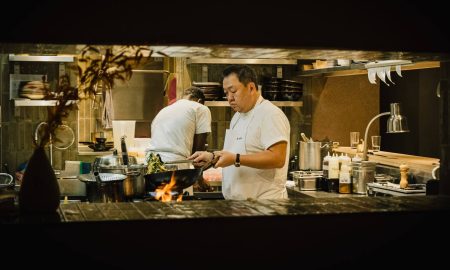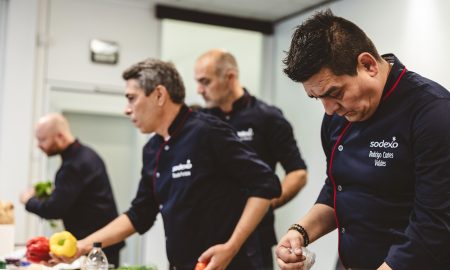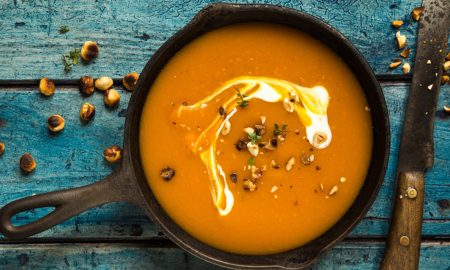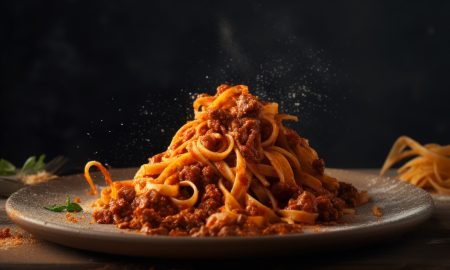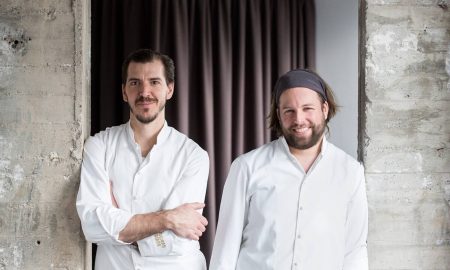And there we go. Nearly three million ticket holders are preparing to arrive in Qatar this month for the 2022 FIFA World Cup, and while football may be at the front of their minds, food will not be far behind. For the small Gulf nation, this is the chance to champion its unique gastronomic heritage on the world stage.
Qatar Cuisine with influences worldwide
Set in the Persian Gulf, Qatar offers a culture with influences from Bedouin, Indian and East African traditions. As well as this, it is home to 2.3 million international expatriates, making it a melting pot of cultures and cuisines.
For chefs traversing from far-flung corners of the globe descending on Qatar during the World Cup, this confluence of cultures and cuisines will be on display. They’ll have a chance to show off their culinary creations while mingling with chefs from all over the world – maybe even drawing inspiration for new dishes.
The Gulf is notorious for fusion foods that blend the myriad cultures present. The World Cup will create a cauldron of heightened cultural mixing, with over 1 million fans from various countries present. Chefs and football fans alike can look forward to these unique foods being a staple of the catering offer at the World Cup. Doha’s food scene has evolved recently to include uber-trendy plant-based options and low-waste meal options. But at the heart of the Gulf cuisine is the food that’s been served in the desert for centuries.
Tap into tradition
Strongly influenced by Arabian tradition and local flavors, typical Qatari dishes are often slow-cooked in clay pots over a fire. Qatar is a peninsular nation whose economy depended on the sea until the 20th century, and seafood remains an important part of the culinary heritage. Dishes often feature fish in the summer and meat in the winter and use spices like cloves, black pepper, cinnamon, and saffron. The country is also one of the biggest consumers of sugar, tea, and fruit in the Arab world.
Sieh dir diesen Beitrag auf Instagram an
For visitors looking to embrace tradition, machboos is Qatar’s national dish, a combination of basmati rice and grilled meat or fish, seasoned with garlic, ginger, peppers and the Qatari spice blend known as bizar. Khobes rgag is Qatar’s typical flatbread, which accompanies dishes including thareed, a stock and tomato sauce stew with khobes rgag lining the bottom of the pot. Other important dishes include harees, slow-cooked wheat blended with lamb or chicken, and madrouba, a type of spiced rice porridge topped with fish or meat.
Stadium experience
The Supreme Committee for Delivery & Legacy promises that the 2022 FIFA World Cup will offer a range of gastronomic options, including African, Asian, and European cuisines, vegetarian and non-vegetarian, fine dining and casual. Along with hospitality and leisure specialist Aspire Katara Hospitality, which has been contracted to manage the planning and execution of catering for the event, the Committee has made more than 400 units available for food and beverage businesses to deliver concession stands across the eight stadiums.
Within the stadiums, hospitality options range from the luxury Pearl Lounge, positioned at the halfway line at the Lusail stadium and offering a six-course “gastronomic showcase”, complete with live chef stations, to the street-food style dining available at the Match Club. Tricon Foodservice Consultants is responsible for the hospitality designs of six of the eight stadiums, working on sustainability and waste management.
Drinking laws
This is the first time the World Cup will be held in a Muslim country in the Middle East. In Qatar, the legal drinking age is 21, and it is illegal to drink and be drunk in public. Alcohol is usually available in a limited number of specially licenced premises, but some exceptions have been made for the event. The U.S. brewery Budweiser is an official sponsor of the 2022 World Cup and is also beating the PR drum for this.
Sieh dir diesen Beitrag auf Instagram an
Exploring Foodservice at the World Cup
Beyond the event perimeter, the city of Doha, known as the “mini Dubai”, is home to almost 3,000 restaurants and dining experiences. In the run-up to the World Cup, many international names have expanded to Doha, including venue operators 7Management, laid-back Italian dining concept ADRIFT Anda and American breakfast chain IHOP.
High-end options in Doha include the contemporary Mediterranean cuisine with Arabian flavors of IDAM, Japanese food served by Nobu, SMAT, which offers a modern take on traditional Arabic food, and the Persian flavors of Parisa restaurant. For quick service, international chains are available, including McDonald’s, MOOYAH, Fatburger, Papa John’s, Shake Shack and Lissan Al Asfour, which serves pizza and shawarma.
Sieh dir diesen Beitrag auf Instagram an
For visitors looking to browse, Doha offers a number of food court venues. Souq Waqif – souk meaning marketplace – and Katara Cultural Village both offer a wide range of dining options, including traditional style menus. The artificial Pearl Island is an “integrated leisure experience”, where visitors can choose from waterfront fine dining to casual restaurants and trendy cafes.
Sieh dir diesen Beitrag auf Instagram an
As an international audience of over three billion people tune in to watch the World Cup, Qatar has the opportunity to showcase its rich cultural heritage to the world. Representing its diverse geographical influences, as well as the nation’s history, food promises to be one of the champions of Qatari culture.







